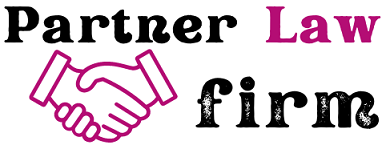Accusations of domestic violence are taken very seriously by law enforcement and by the courts. A conviction can have serious consequences, including a damaged reputation, a loss of freedom and even jail time.
A good domestic violence lawyer Atlanta can help you defend your rights and navigate a complex legal system that sometimes seems stacked against those accused of a crime.
Restraining Orders
Restraining orders (also known as protective orders) are court orders that restrict contact between alleged victims and their abusers. These orders can be used against family members, intimate partners, coworkers, or even neighbors or people with whom you had a one-night stand.
The process begins when a petitioner files what is called an ex parte protective order with a local family court judge. This petition describes the most recent incident of violence or threats of violence. The judge will then issue a temporary order until a hearing can be held to determine whether the temporary order should be made permanent.
At the hearing, both parties must be present to argue their case before the judge. A knowledgeable family law attorney could make persuasive arguments on your behalf that could get the restraining order reversed. Even if the order is not reversed, an attorney could work hard to minimize its impact on your professional and personal life.
Temporary Protective Orders
When a person is afraid of being hurt, they can file what’s known as an ex parte temporary protective order. This allows them to talk to the judge in private without the alleged abuser being present.
The judge will review the petition and decide if they believe you are in danger. They will also ask you to describe what happened in detail. Be sure to include past instances of violence so the judge has the full picture to consider.
The judge will then grant you a temporary order of protection, which can last up to 30 days. It will direct the alleged abuser to have no contact with you, not come within a certain distance of you, and may order them to stay away from your home. The judge will schedule a hearing to determine whether to extend the order for 12 months or even make it permanent. If the alleged abuser violates the order, they could face criminal charges.
Permanent Protective Orders
If you need protection from a spouse, partner, ex-partner, family member, household members or roommates, a permanent protective order could be in your best interest. Unlike temporary orders, these permanent ones prohibit the accused from engaging in physical violence or threatening behavior. They also prevent the accused from coming within a certain distance of your home and work and can force them to move out of a shared residence or lose visitation rights with children.
In most cases, a judge will decide whether to grant a permanent order after hearing from the plaintiff and defendant during a court proceeding called an ex parte hearing. You should have a domestic violence attorney by your side when this happens so that you can present the facts of your case to a judge. Once a judge grants an ex parte order, the restrained party (the respondent) will have to be served with the order and a date for a hearing scheduled.
Criminal Charges
Domestic violence allegations can result in a raft of consequences that affect the accused and their family. They can include a year in jail (for misdemeanors) or up to two decades of incarceration for felonies, a lifetime criminal record, substantial fines, mandatory anger management programs and probation, and the requirement to stay away from the victim. Those accused may also lose access to their children in custody disputes, be barred from owning firearms and have difficulty finding housing and employment as a convicted felon.
The burden of proof is on the State, which must prove guilt beyond a reasonable doubt. A reputable defense attorney can use evidence such as witness testimony and verifiable alibi to weaken the prosecution’s case. An experienced lawyer can also help to remove emotion from the proceedings, which can cause jurors and judges to be manipulated.

